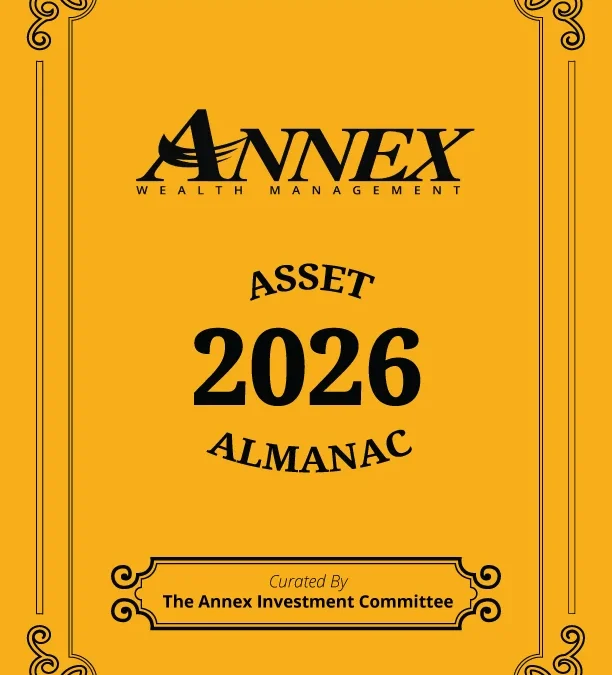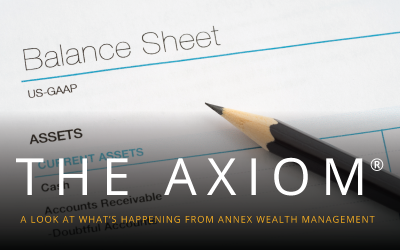Macro & Market Musings are weekly insights on Growth, Inflation, Policy and Looking Ahead from Annex Wealth Management’s Chief Economist, Brian Jacobsen. Brian, a frequent contributor on CNBC and Fox Business News, hosts regular updates on the economy and markets. Check our events page for Brian’s next live event.
Growth: Contrasting signals
 In October, the US services sector experienced its fastest expansion in over two years with the Institute for Supply Management’s (ISM) Services Purchasing Manager Index (PMI) rising to 56.0 from 54.9 in September. This growth was driven by increased business activity and new orders, indicating robust economic momentum. In contrast, the manufacturing sector continued to contract, with the ISM Manufacturing PMI falling to 46.5 from 47.2, marking the seventh consecutive month of decline. October hurricanes affected manufacturing, but there’s been a growing wedge between services and manufacturing. Either services needs to pull manufacturing higher or manufacturing will drag services down.
In October, the US services sector experienced its fastest expansion in over two years with the Institute for Supply Management’s (ISM) Services Purchasing Manager Index (PMI) rising to 56.0 from 54.9 in September. This growth was driven by increased business activity and new orders, indicating robust economic momentum. In contrast, the manufacturing sector continued to contract, with the ISM Manufacturing PMI falling to 46.5 from 47.2, marking the seventh consecutive month of decline. October hurricanes affected manufacturing, but there’s been a growing wedge between services and manufacturing. Either services needs to pull manufacturing higher or manufacturing will drag services down.
Inflation: High(er) expectations
Treasury yields rose after Trump won the election. Inflation expectations, as represented by the “break even” rate of inflation on Treasury Inflation Protected Securities, were the main driver of the increase. Between tariffs and, possibly, bigger deficits, the market is pricing in slightly higher inflation. Inflation expectations are still relatively contained and a lot can happen between the campaign trail and the Oval Office when it comes to policies that are implemented. Fading the fear, even a little bit, of higher inflation is a little easier now that yields have abruptly shifted higher.
Policy: Past isn’t prologue
Trump the 45th president had an economic strategy centered on significant tax cuts and targeted tariff increases, primarily on steel, aluminum, and a range of Chinese goods. However, at least based on his campaigning, Trump the 47th president will have an agenda that differs in focus and magnitude from the Trump 45 agenda. The tax cuts he pursues will likely be more about extending the Tax Cuts and Jobs Act with some expansions, but not a radical change like we saw in 2017. However, his tariff proposals now are far more expansive. This approach, combined with likely large regulatory and immigration changes, indicates that Trump 47 won’t be a mere replay of Trump 45. Investors should avoid assuming that the market moves during his second term will simply mimic the moves during his first.
Looking ahead: Elections have consequences
Politics matter, affecting investments from both a bottom-up and a top-down perspective. For individual companies, the outlook for their fundamentals can shift based on their industry and location. At a broader level, new policies can reshape the economic landscape for entire sectors and regions, altering competitive dynamics, growth prospects, and inflation pressures. Whether you’re focusing on company fundamentals or taking a macro view, elections have consequences. Given the inherent uncertainty in timing and specifics, staying diversified, well-informed, and ready to adapt will be essential for navigating the shifting landscape in the months and year ahead.







